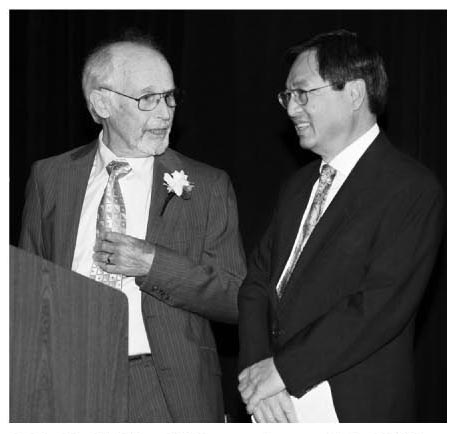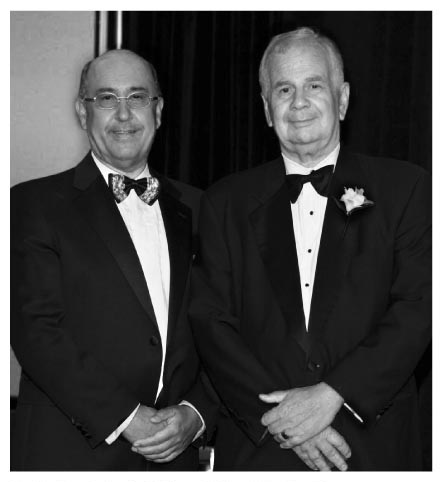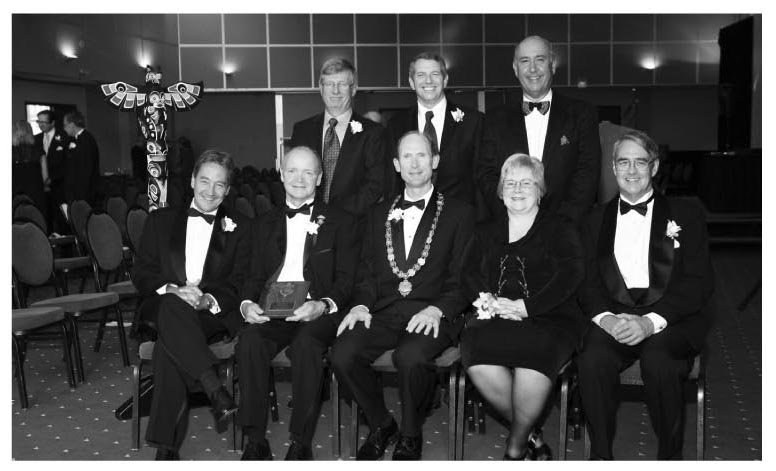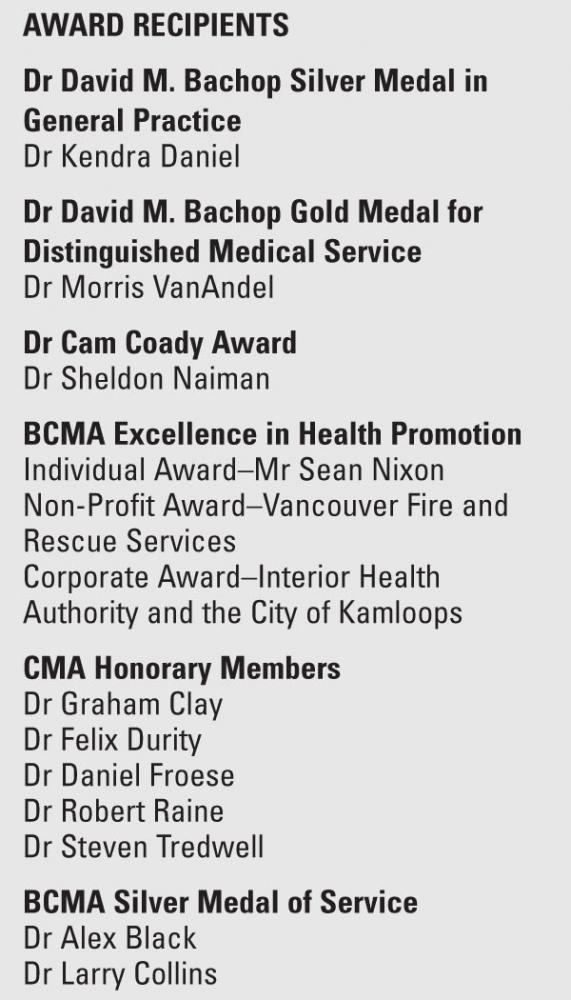BCMA Annual General Meeting report
13 May 2009
Wall Centre Hotel, Vancouver
The 2009 BCMA Annual General Meeting was back in Vancouver after a trip to Prince George last year. This year’s business session had 175 members registered to attend—one of the largest ever gatherings at a BCMA annual general meeting, and a far cry from the dismal attendance records at meetings past.
Dr Granger Avery was elected chair of the 2009 BCMA annual general meeting. Dr Avery started the meeting by asking members to give a round of applause to Drs Margaret McDiarmid and Moira Stillwell for winning in the recent provincial election and for being nominated to cabinet positions. He stated it was a proud moment for BCMA to have two women physicians elected to the parliament in Victoria. He also congratulated Dr Don Rix for recently being awarded the Order of Canada.
Chief executive officer’s report
Dr Mark Schonfeld, BCMA CEO acknowledged the presence of assistant deputy ministers of health, Dr Stephen Brown and Ms Sheila Taylor, with whom the BCMA has developed excellent working relationships.
Dr Schonfeld stated that the past year had been an extremely good one for the Association, especially in regard to delivery of health care in the province. The BCMA has received global recognition for GPSC’s work on disease management, and this recognition was one of the highlights of a year that reflected the work of the members in advancing primary care through the successful collaborative efforts of the BCMA/GPSC and the Ministry of Health Services. He informed members that the Association was pushing for the same sort of progress with the Shared Care Committee and the Specialist Services Committee.
Report of Board of Directors
Dr Alan Gow, chair of the Board, made special mention on the collegiality of the societies and thanked them for making the best interest of the profession paramount in their deliberations.
Dr Chris Sedergreen said that he had expected to read something in the Board report regarding the litigation issue involving former Board member Dr Caroline Wang. This was deferred by Dr Avery for discussion under new business.
Dr John O’Brien-Bell stated that the Medical Post is planning on running an MD pension campaign, and questioned whether the Board had done anything about this issue. He was informed that this issue had not been debated and that it too could be addressed under new business.
Audit and Finance Committee
Dr Rix, chair, treated the audience to a slide presentation showing the highlights of the past year and informed the meeting that the BCMA had experienced no financial losses despite the swift downturn of the global economy, and that the Audit and Finance Committee had adopted a very low-risk investment policy as the committee felt it was very important to preserve capital; this strategy may garner lower returns but it also avoids undue risks. He informed the meeting that the Association has a healthy 6-month cushion of reserves to fall back on; that $250 000 had been transferred to the student bursary fund to support students annually, and that the Association granted $1500 bursaries to 100 students. He stated that the management fees received by the BCMA for administration of the several joint programs have been increasing over the years; that the Association’s expenses remained around $13 million; and on behalf of the recipients, thanked all members for their donations to the BC Medical Foundation’s Benevolent Fund, stating it was truly money spent on supporting peers in need.
His call for any questions was taken up by Dr Sedergreen, who queried what the cost to members was in regard to litigation involving Dr Wang. Dr Schonfeld stated it was approximately $240 000. Dr Zafar Essak questioned whether any funds had been paid to Wang for her legal expenses and Dr Schonfeld stated that the BCMA had presented their proposal to Dr Wang’s lawyers and that they were awaiting a reply. In the meantime, no funds have been paid toward Dr Wang’s legal costs.
Dr Essak stated that he was looking for more clarity in the financial reports regarding the PITO project. He wondered what the BCMA liabilities were in regard to PITO staffing, and whether the $500 000 increase in management fees (partly because of PITO funding) could be clarified. These queries were answered by Ms Christiane AhPin, BCMA chief operating officer, who stated that all PITO and GPSC staff are hired on a contract basis for the duration of the agreement, that is, until 2012.
Dr Rix informed the meeting that BCMA membership had increased by 2%, that the number of student members continues to increase, and that membership dues for the last 4 years had not increased. With great fanfare and four saxophonists from the Vancouver Symphony Orchestra, he moved, “That there be no BCMA membership dues increase in 2010.” The motion was carried unanimously.
Approval of 2008 AGM minutes
Dr Avery asked that the minutes of the 2008 AGM be approved as circulated in the BCMA Annual Report. Dr Essak asked the chair if the proceedings of the AGM continue to be recorded electronically. Dr Schonfeld confirmed this was still so. Dr Essak stated that the minutes could not be accepted as circulated as they did not accurately reflect the order of the proceedings.
Dr Sedergreen stated that the minutes were whitewashed, did not accurately reflect the happenings in Prince George, and that a more accurate representation was required. Dr Avery informed Dr Sedergreen that more specific motions and amendments would be required for any changes to be considered. Further discussion ensued on this topic and Dr Derryck Smith, Resolutions Committee chair, stated that the committee was considering this request of reworking the minutes and discussing this issue with legal counsel, as specific corrections or deletions are required to document the proposed changes.
Dr Essak then requested that a committee of the general membership at this AGM be struck to review all records of the 2008 AGM and be charged with the responsibility of overseeing the preparation and circulation of the amended minutes of the 2008 AGM to the entire membership within 90 days.
After further discussion it was decided that a motion be put forward to table the minutes, which if passed could see a committee struck to review and re-present the minutes at a future date. This motion was defeated.
Dr Brad Fritz then introduced a motion to approve the Annual General Meeting Business Session and General Assembly minutes. Prior to this question being called Drs Essak and Sedergreen introduced more motions regarding amendments to the minutes, all of which were defeated. Dr Fritz’s main motion to approve the minutes then returned to the floor and was approved.
New business
Dr Sedergreen’s next question was that given that the Wang case had gone to appeal and that no new evidence has been introduced to the court, couldn’t it be discussed in further detail. Mr Bozzer, BCMA legal counsel, did not recommend that this appeal or the merits of appeal be discussed in this forum as there are complex points of law in the appeal before the courts, and it would be premature to discuss it now.
A motion was put forward by Drs John O’Brien-Bell and Erik Paterson, “That the General Assembly of the BCMA support the Medical Post’s MD Pension Day of June 15 and requests that the Board consider endorsing the campaign at the next meeting.” The motion was carried.
A motion was brought forward by Drs Kirsten Emmott and James Hayward “That BCMA reaffirm its opposition to the spending of public funds on any practitioner, diagnostic modality, [or] therapy that is not evidence-based, meaning for which there is insufficient reliable evidence of safety and/or efficacy.” The motion was carried.
Drs Paterson and O’Brien-Bell then presented a motion stating, “Whereas there is a rising tide of antibiotic-resistant bacterial infections at increasing cost to the health care budget, and; whereas the principal mode of transmission is by human hands; and whereas the washing of hands with soap and water is the best, proven means of preventing the transmission of such infections, be it resolved that the BCMA recommend to the government of British Columbia that on the door out of every washroom to which the public has access there be prominently displayed a sign saying, ‘Did you wash your hands?’” This motion was carried.
The issue of the family doctors shortage was discussed, especially in light of specialists’ inability to hand patients over to FPs for continuing care. Discussion centred on the present fee schedule that does not adequately reflect continuing care; that GPSC is studying this problem, and is aware that this 40-year-old document needs to be reviewed. Dr Katherine Paton proposed that this matter be referred to the Collaboration Committee where the BCMA and government representatives sit together and discuss this issue. Members were informed that this was not allowed as any referrals can only be made to the Board for consideration.
A motion brought forward by Drs Maggie Hay and Jannie duPlessis, “That the BCMA advise specialists, especially pediatricians, how to continue caring for complex cases when the patients no longer have family doctors to care for them.” This motion was carried.
To a question as to why there was a 14% increase in premiums for the out-of-country Travel Insurance Program, Ms AhPin explained that premiums are decided upon by insurance companies based on the amount of claims paid, and that BCMA staff continuously reviews the rates and plans to find the best offers for members.
With no further business to transact, the meeting was adjourned and members proceeded to the incoming president’s luncheon.
—Kashmira Suraliwalla
BCMJ Production Coordinator
___________________________________________________________________
New president’s address: Brodie discusses three key areas
At his address over lunch at the Wall Centre Hotel, new BCMA president Dr Brian Brodie gave a wide-ranging speech about the BCMA and what it stands for. He touched on CEO Dr Mark Schonfeld’s short-hand mission statement, “happy doctors and healthy patients,” and expanded it to the following four broad statements: pay us, train us, support us, and value us,” using these themes to talk about the BCMA, where it is, and where it’s going.
He then spoke about some of the projects he’ll be working on in the coming year. The following is excerpted from his speech:
Specialist Services Committee
First, I look forward to working with the Specialist Services Committee, ably chaired by Dr Ken Seethram. We need to ensure this committee develops, proposes, and implements initiatives that will improve the practice of specialty medicine and the way it is compensated in this province. We have already had one think-tank session and it’s clear that this committee is not going to suffer for a lack of ideas to address long overlooked needs. I know Ken will be as big a champion for this cause as Dr Bill Cavers has been with his work on the GPSC.
Shared Care Committee
Second, and closely aligned with the work of the Specialist Services Committee is the important work of the Shared Care Committee. This committee is working to develop proposals that help bridge the gap and improve the interface between specialists and generalists in our province.
The doctors lounge is gone, and with it the place of many informal exchanges among colleagues. When people stop talking to each other barriers can go up, misunderstandings become commonplace, patient care suffers, and professional satisfaction drops.
The Shared Care Committee is doing work in this arena—I’m confident that ideas and initiatives are going to take life this year, and I want to be a part of this.
Child and youth mental health
Finally, I want to talk about a special project that is taking place in the Vancouver Eastside. I’m personally involved and excited by this project and the potential benefits.
In cooperation with the Vancouver School Board and Vancouver Mental Health, the BCMA is doing a pilot project with a specific community and school in this area looking at child and youth mental health.
A project team that I have led over the last 4 months has established a working group that will look at the care gaps for these young people and the professionals who work with them. The school counselors who check the pulse of a diverse social and ethnic group of young people must be closely involved. In the school we are working with, English is the first language in only about one-third of homes.
Together we will educate ourselves about how to identify and assist young people with mental health concerns, because we know that timely intervention can have a life-changing benefit. Together, in cooperation with the doctors in this community, we hope to develop a training module around youth mental health.
Our hope is that the approach we develop connects doctors with teachers, mental health workers, and school counselors in such a way that identification and timely attention to youth mental health issues becomes a reality in this community. The approach will produce measurable and tangible results that we will all want to see taken across the province. This is a great project and no doubt you will hear more from me as more work gets done on the initiative.
___________________________________________________________________
L-R: Dr Robert Ouellet presenting the CMA Honorary Membership award to Dr Felix Durity.

L-R: Winners of the BCMA Excellence in Health Promotion corporate award, Interior Health Authority and City of Kamloops members Mr Glen Cheetham, Ms Kathryn Briscoe, Mrs Jennifer Edgecombe, with COHP chair Dr Lloyd Oppel.

L-R: Dr Sheldon Naiman, winner of the 2009 Dr Cam Coady Award, with presenter Dr Richard Louie.

L-R: Dr Mark Schonfeld with Dr Larry Collins, recipient of the BCMA Silver Medal of Service.

Dr Bill Mackie displaying the plaque and pin given to acknowledge the work of past presidents.

Dr Brian Brodie, addressing the audience upon his investiture as BCMA president.

L-R: Drs Margaret McDiarmid, Jeffrey Beckman, and Geoff Appleton.

L-R: (standing): Drs Geoff Appleton, Lloyd Oppel, Mark Schonfeld; (sitting): Drs Jorge Denegri, Bill Mackie, Brian Brodie, Shelley Ross, Ian Gillespie.

